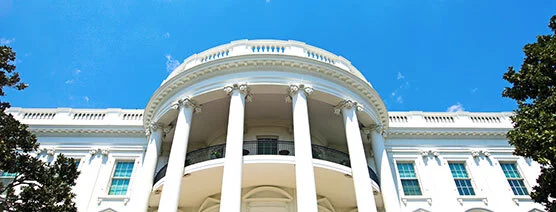Trump's First 100 Days: Real Estate and Construction
Trump's presidency is likely to have significant effects on the market, which will in turn influence real estate and construction trends for years to come. The market shifts from Trump's presidency shifts won't happen overnight, but the policies unveiled during Trump's first 100 days will set the course.
In the short term, these industries could see a boost from increased spending and deregulation. As fiscal, regulatory and immigration policy under Trump and a Republican-controlled Congress takes shape, it is important to keep a long view when it comes to commercial real estate and construction.
AT A GLANCE
- Extending the Tax Cut Jobs Act would result in lower corporate tax rates, more favorable depreciation allowances and reduced operating costs for property owners.
- If parts of the Inflation Reduction Act are repealed, there may be less funding for renewable projects, but this could be balanced out with increased spending on oil, gas and nuclear energy.
- Longer term, the construction industry will need to address legal complexities surrounding labor, environmental and, particularly, immigration policies. In some regions, costs may increase due to an anticipated shortage of immigrant labor.
REAL ESTATE
Tax policy
President-elect Trump may seek to extend or expand tax incentives like the 2017 Tax Cut and Jobs Act, which benefited real estate through lower corporate taxes and favorable depreciation allowances for commercial properties. A lower general corporate income tax rate—and an especially low tax rate (15%) for corporations that manufacture products in the U.S.—could reduce operating costs for property owners.
Deregulation
President-elect Trump will likely roll back environmental and financial regulations, perhaps making development—and real estate financing for development—quicker and less costly. Some projects may get caught in efforts to repeal the Inflation Reduction Act, but with Republican and corporate support for various aspects, it's unlikely to go away entirely. Private equity could step in to fund some renewable projects, and it's expected there will be opportunities in oil, gas and nuclear energy.
Interest Rates
Under a Trump administration, interest rates are likely to face upward pressure due to inflation. President-elect Trump's economic agenda around tax cuts, deregulation and increased tariffs could drive consumer prices higher, forcing the Federal Reserve Board to slow the pace of rate cuts (or perhaps even increase rates) to control inflation. All of this could lead to higher borrowing costs for real estate projects.
For financial institutions, property managers and real estate investors with overleveraged commercial real estate, innovative strategies and solutions may become necessary. Borrowers, particularly those in industries facing financial headwinds, may want to consider their debt workout options.
CONSTRUCTION
Increased Infrastructure Spending
One of the administration’s key promises involves substantial investments in infrastructure. This initiative aims to boost jobs and growth by repairing and upgrading roads, bridges, airports and other essential infrastructure. For the construction industry, this could lead to a surge in projects, potentially increasing demand for materials, labor and other services, thereby boosting profitability for contractors and related businesses.
Regulatory Reform
The Trump Administration has signaled a commitment to reducing regulations that could be seen as burdensome for businesses. Simplifying processes for construction permits and easing environmental reviews may reduce project timelines and costs, encouraging both public and private construction efforts.
Tax Cuts
Proposed tax cuts for corporations and small businesses could provide more capital for firms in the construction industry, encouraging expansion and investment in new projects.
Changes to Labor Policies
The new administration may support policies aimed at reducing the influence of labor unions in favor of “right-to-work” laws. This could affect wages and labor negotiations, impacting contractor costs and workforce management within the industry.
Environmental Regulation Adjustments
While less regulation may speed up project approvals, the easing of environmental standards could lead to legal challenges from advocacy groups. Contractors and developers may need to prepare for potential legal battles surrounding large-scale construction projects, especially those impacting natural resources.
Immigration Reform
President-elect Trump's stricter immigration policies may reduce the availability of immigrant labor, impacting the construction workforce. This could lead to a shift in workforce availability, particularly in regions heavily reliant on immigrant labor. In turn, labor costs for some real estate development projects could increase. Legal and compliance considerations for companies in hiring practices may also become more complex as they navigate new policies and regulations.
Overall, the construction industry could see a short-term boost from increased spending and deregulation, though it may need to address legal complexities surrounding labor, environmental and immigration policies. These shifts could shape the trajectory for the construction sector over the next four years.
This article is part of a broader analysis examining the anticipated challenges and opportunities created by an administration change. Attorneys from several different practice areas contributed to this series of articles across multiple legal areas.
Related Capabilities
News & Insights
